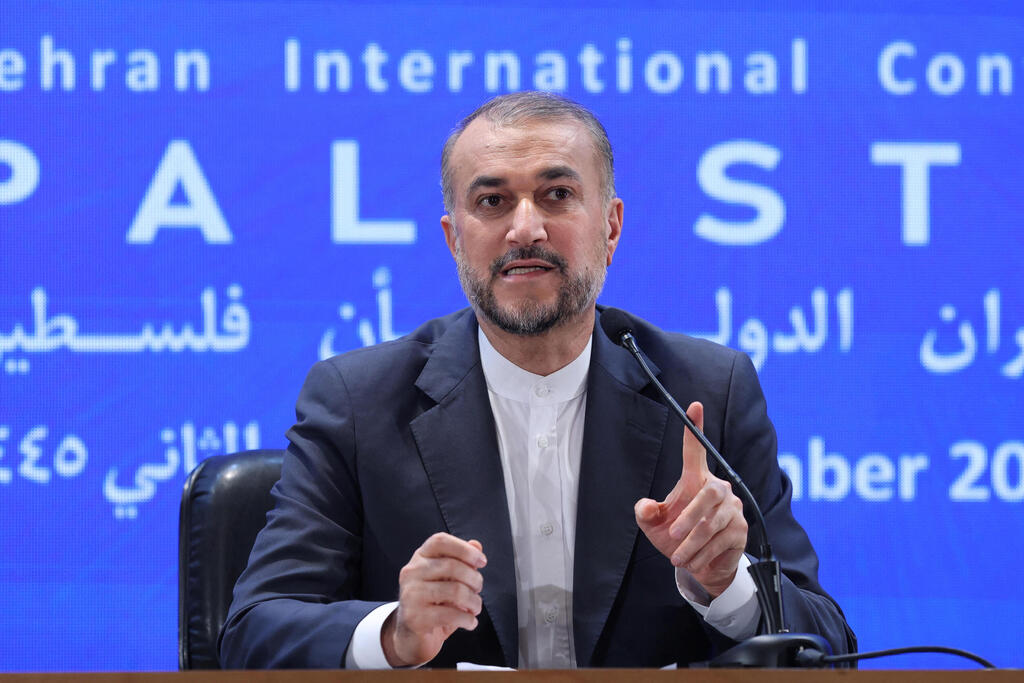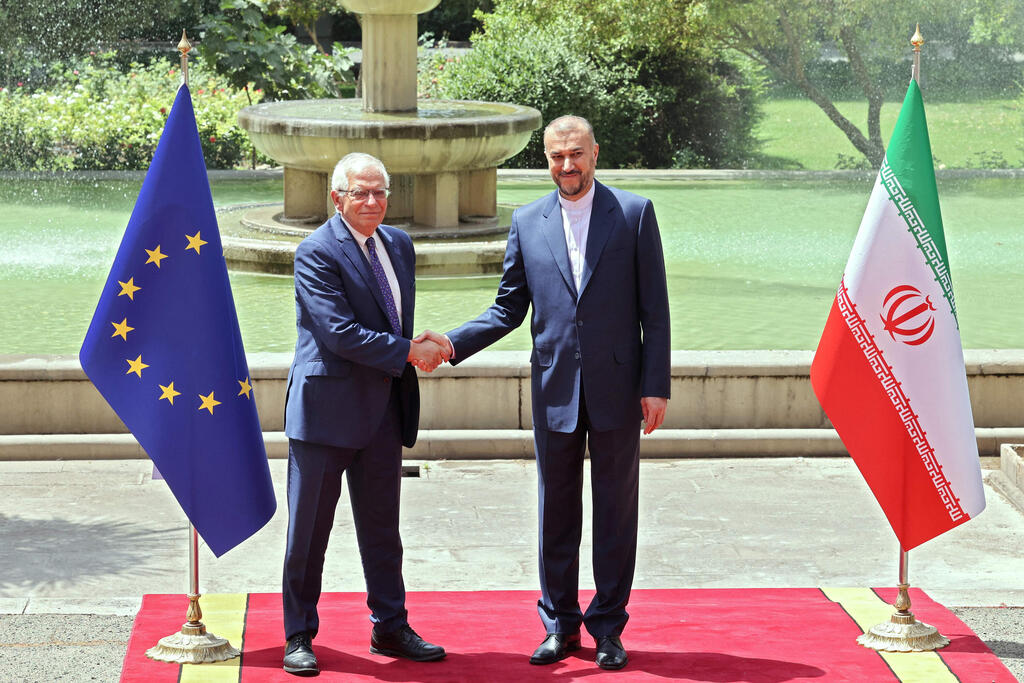Getting your Trinity Audio player ready...
Iran confirmed Monday morning that Foreign Minister Hossein Amir-Abdollahian died alongside Iranian President Ebrahim Raisi in Sunday's fatal helicopter crash near the Iran-Azerbaijan border.
Hossein Amir-Abdollahian, a prominent critic of Israel since the beginning of the Gaza war, has lobbied exentesively against the Jewish state in recent months, consistently threatening and condemning it. He recently embarked on regional tours with stops in Iraq, Lebanon, Syria and Qatar.
2 View gallery


Iranian Foreign Minister Hossein Amir-Abdollahian
(Photo: Majid Asgaripour/WANA (West Asia News Agency) via REUTERS)
Amir-Abdollahian advocated for action against Israel and called for the establishment of an international committee to investigate alleged Israeli crimes. He argued that Israel was "struggling in the Gaza Strip due to Palestinian resilience and resistance." He frequently warned that the Israeli regime posed a threat to regional security.
Following an Israeli retaliatory attack against Iran, Abdollahian asserted that Iran would take immediate action if Israel attacked again.
Abdollahian was appointed Foreign Minister by Raisi in 2021. According to Al Jazeera, he had good relations with Iran's Supreme Leader Ayatollah Ali Khamenei and various figures in the so-called "Resistance Axis," which opposes U.S. influence in the Middle East, including the Hezbollah terror organization and its leader Hassan Nasrallah.
The Qatari network reported that Abdollahian also had good relations with Iran's powerful Revolutionary Guards Corps and was in good contact with Qasem Soleimani, commander of the its elite Quds Force, who was assassinated by the U.S. in early 2020.
The Iranian minister authored several books and articles on politics and international relations. Early in his career, he served in various diplomatic missions across the Middle East, forging close ties with anti-Israel leaders.
From 1997 to 2001, he served as Iran's deputy ambassador in Baghdad. Later, he took charge of Gulf issues in the Iranian Foreign Ministry and played an active role in the Iranian nuclear agreement. He also worked to strengthen relations with China and Russia and help facilitate the rapprochement between Iran and Saudi Arabia.
In his final days, Amir-Abdollahian spoke with UN Secretary-General Antonio Guterres about Israeli activity in Rafah, warning that if Washington allowed Prime Minister Benjamin Netanyahu to commit "new crimes" there, the consequences would be severe. He stressed that Washington must choose between supporting a cease-fire in Gaza or escalating regional tensions.
Early in the war, Amir-Abdollahian spoke with Ismail Haniyeh, head of Hamas' political bureau, about Gaza developments, meeting with him several times since.
Since the outbreak of the war, the minister held numerous talks with counterparts in Egypt, Saudi Arabia and Qatar, accusing Israel of escalating regional tensions. He maintained contact with pro-Iranian militias across the region, issued multiple threats against Israel and met in Tehran with Mohammed Abd al-Salam, the official spokesman for the Houthis.



